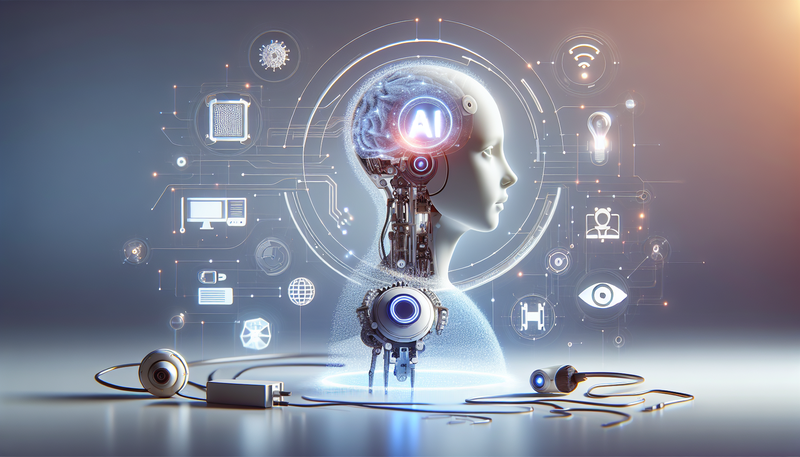The world of web development is evolving faster than ever. Just like how cloud-based tools once replaced traditional software, we’re now seeing a new shift in how apps are built and interact with users. This time, AI agents are leading the way. These smart systems can communicate with users, process data, and even handle complex tasks without relying on the traditional layers of software we once used.
Microsoft CEO Satya Nadella calls this the “agent era,” where AI takes charge of more functions than ever before. Let's take a deeper look at how this shift is changing the way we build and use web applications.
Why Traditional Web Apps might struggle
Web applications, whether for e-commerce, customer service, or data management, have been around for a while. But they come with some challenges:
- Reliance on Databases:
Traditional web apps depend heavily on databases for storing and manipulating data, typically offering a simple user interface (UI) on top. - Rigid Business Logic:
Business rules and logic are often hard-coded, making it difficult to customize the app for specific needs or adjust the workflow without significant effort. - High Costs:
The cost of maintaining web apps, whether for licensing, updates, or server infrastructure, can add up quickly. Many businesses are starting to question if these costs are worth it in the long run.

How AI Agents Are Changing the Game
- Direct Data Access:
AI agents don’t need complex UI layers to interact with data. They can pull, analyze, and even modify data independently, making them more efficient than traditional systems. - Learning and Adapting:
Unlike traditional software, which follows fixed rules, AI agents learn over time. They adapt to new tasks and improve through experience, providing smarter solutions as they grow. - Conversational Interfaces:
Instead of navigating through menus and forms, users can interact with AI agents using natural language through text or voice. This creates a more intuitive and efficient user experience.
What This Means for Web Developers
For designers, developers, and anyone working on web applications, the way you think about building apps is shifting. It’s no longer just about writing lines of code - it’s about creating intelligent systems where AI can handle the heavy lifting. With AI agents at the core of your apps, you can focus on higher-level tasks while letting the AI handle repetitive or complex processes.
How AI Agents are Shaping the Web App Landscape
While AI is shaking things up, there are plenty of ways for web app developers to take advantage of this shift:
- Focus on Data-Driven Development:
Developers working with large datasets—like financial, customer, or operational data—can use AI to provide insights and automate tasks. This not only improves efficiency but also makes applications more valuable to end-users. - Integrating AI into Existing Systems:
Web apps that are already in place can evolve by adding AI capabilities. This means creating platforms that support AI agents, making it easier for businesses to integrate AI without completely rebuilding their systems. - Optimizing Costs:
Although AI can initially be expensive, the use of cloud-based technologies and smarter systems can help reduce overall costs. By leveraging AI’s ability to optimize processes, web developers can create more efficient, cost-effective apps.

Challenges Developers Will Face
- Competing with More Efficient AI Systems:
Web apps that don't incorporate AI could face the risk of becoming obsolete as businesses move towards more flexible, AI-powered solutions. The challenge is clear: adapt or fall behind. - Outdated Technologies:
Traditional web apps, especially those with rigid architectures, may struggle to compete with the adaptive and scalable AI systems that are rapidly taking over.
A Crucial Shift in Web Development
The next few years will be pivotal in shaping the future of web development. Developers who embrace AI technologies and integrate them into their workflows will thrive, offering more intelligent, cost-effective, and user-friendly applications. Those who resist change risk being outpaced by newer, more innovative solutions.
For designers and developers, the rise of AI agents is a great opportunity to rethink how applications are built, used, and experienced. By staying ahead of this curve, you can help shape the future of web applications.

Final Thoughts
The traditional web app is evolving into something smarter and more efficient. With AI agents taking over many of the tasks once reserved for rigid software structures, we're entering an era where apps are more dynamic, adaptable, and user-friendly.
This transformation will continue to accelerate. The question is: will you adapt and lead the charge in building the next generation of web applications, or will you be left behind in the wake of AI disruption? The choice is yours.

